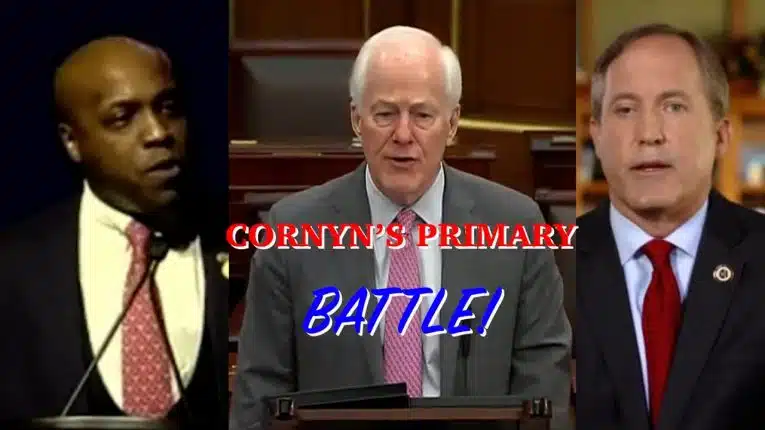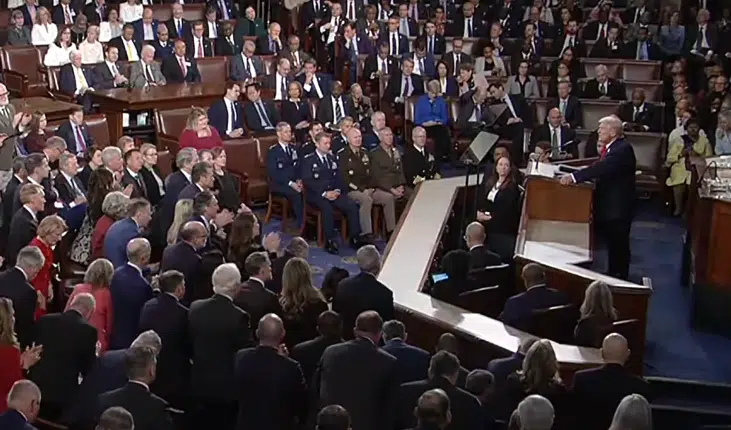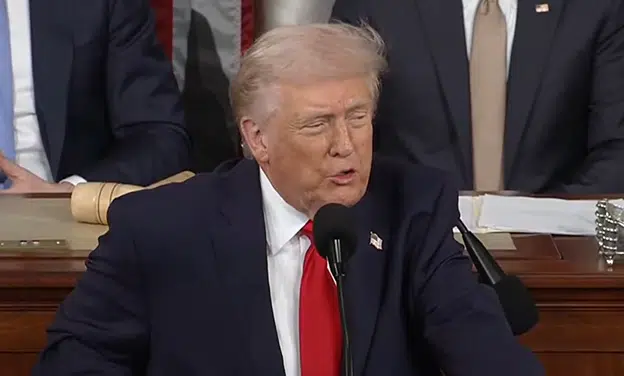Getting the southern border wall approved by Congress may have just gotten slightly harder from a negotiating standpoint.
On Jan. 10, the U.S. Senate unanimously passed legislation with no roll call, S. 24, that guarantees that all furloughed, “non-essential” federal employees will ultimately be paid after partial government shutdowns end from now on, along with those deemed to be “essential”.
The bill, which President Trump will sign, states, “Each employee of the United States Government or of a District of Columbia public employer furloughed as a result of a covered lapse in appropriations shall be paid for the period of the lapse in appropriations, and each excepted employee who is required to perform work during a covered lapse in appropriations shall be paid for such work, at the employee’s standard rate of pay, at the earliest date possible after the lapse in appropriations ends, regardless of scheduled pay dates.”
Usually, Congress has to go back and pass an additional measure awarding back-pay to the furloughed and essential workers whenever there is a lapse in appropriations.
But with this new bill, now they’ll be guaranteed back-pay. The same legislation passed the House on Jan. 11 by a near-unanimous margin 411 to 7.
The fact that the only aspect considered for reform is what happens when the government shuts down shows that the move is designed to erode some of the leverage wielded during such shutdowns as much as it is to assure laid off workers that ultimately they will be paid.
For, although the legislation may buy some time politically with the current shutdown, it’s one thing to pass a bill like this, but quite another to seemingly get nothing in return for it. For example, a bill like this could have been tied to civil service reforms like the MERIT Act, to expedite the firing of federal bureaucrats who abuse their positions or are just incompetent.
The additional vote to issue back-pay could have been used to get any number of concessions.
But apparently, Congress is more comfortable with the government operating on auto-pilot. Why have an appropriations process at all, if it means that every year, there might not be a budget? Why not guarantee that all department and agencies automatically get funded at the previous year’s spending level bare minimum? And then there won’t be any shutdowns again?
For, that is where this line of thinking leads to, one where the elected members of the government have little to no say in what gets funded and under what circumstances.
There should be a consequence when one party refuses to fund the other’s priorities that creates pressure to reopen the government with a compromise. Government shutdowns, or their possibility, guarantee that each party treats each other fairly in budget battles. President Trump got elected promising the southern border wall and he won. His party held the Senate in the midterms. Pelosi should have to do business.
Fortunately, the legislation has not ceded all leverage that legislators and the White House possess. There still must be votes to reopen the government. So, the shutdown could still go on for weeks or months, and the 800,000 federal employees will still remain unpaid during that period. That’s probably leverage enough to create pressure to get a deal done sooner rather than later.
“Nancy Pelosi will cave when people are not getting their third pay check and it becomes obvious to everyone that she is the reason they are not getting paid,” Americans for Limited Government President Rick Manning said.
Manning suggested that all federal workers who will ultimately be paid be required to return to work, and ending the “non-essential” federal employee designation.
Manning stated, “OMB should immediately eliminate the non-essential worker distinction as there is now effectively no difference between the two. Nobody should be allowed to stay home, not work and still ultimately get paid. The only reason for essential versus non-essential is because there is a presumed cost savings by not paying non-essential employees.”
Manning added, “By guaranteeing their pay, there is really no reason to have anyone stay home.”
Which, Manning has a point. And perhaps it could help resolve the shutdown. Maybe when federal employees realize they now have to come to work and yet still not get paid, they’ll give Nancy Pelosi a call and suggest that perhaps Republican priorities like building the southern border wall should also be funded in the budget so that shutdowns like this don’t happen again in the future and enough with this one-party rule in Washington, D.C.
Robert Romano is the Vice President of Public Policy at Americans for Limited Government.







